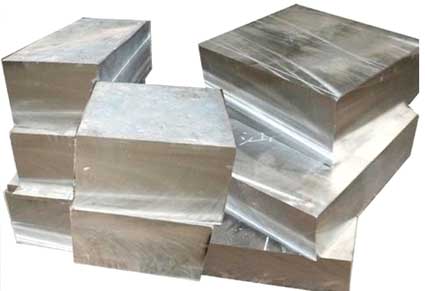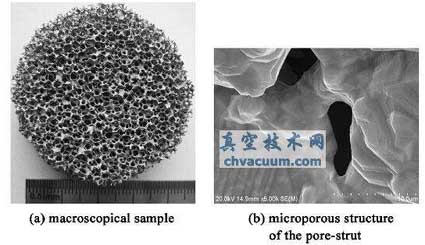Ten Properties of Titanium and Titanium Alloy Parts
Key words: High Specific Strength of Titanium Parts, good heat resistance, low temperature resistance
1. Low density and high specific strength
The metal titanium has a density of 4.51 g/cm3, which is higher than aluminum and lower than steel, copper and nickel, but the specific strength is at the top of the metal.

2, Corrosion Resistance
Titanium is a very active metal. Its equilibrium potential is very low and its thermodynamic corrosion tendency in medium is high. But in fact titanium is very stable in many media, such as titanium in the oxidation, corrosion resistance of neutral and weak reducing medium. This is because titanium and oxygen have a great affinity. In the air or in an oxygen-containing medium, a dense, highly adherent, and inert oxide film is formed on the surface of the titanium to protect the titanium substrate from corrosion. Even if it is mechanically worn, it will heal quickly or regenerate. This indicates that titanium is a metal with a strong tendency to passivate. An oxide film of titanium having a medium temperature of 315 ° C or less always maintains this characteristic.
In order to improve the corrosion resistance of titanium. Surface treatment technologies such as oxidation, electroplating, plasma spraying, ion nitriding, ion implantation and laser treatment have been developed. It has an enhanced protective effect on the oxide film of titanium, and the desired corrosion resistance is obtained. For the production of metal materials in the production of sulfuric acid, hydrochloric acid, methylamine solution, high temperature wet chlorine and high temperature chloride. A series of corrosion resistant titanium alloys such as titanium-molybdenum, titanium-palladium, titanium-molybdenum-nickel have been developed. Titanium castings use titanium-32 molybdenum alloy. For environments where crevice corrosion or pitting occurs frequently, titanium-0.3 molybdenum-0.8 nickel alloy is used. Part of the titanium equipment used titanium-0.2 palladium alloy, which has achieved good results.
3, good heat resistance
The new titanium alloy can be used for a long time at 600 ° C or higher.
4, good low temperature resistance
Titanium alloy TA7 (Ti-5Al-2.5Sn), TC4 (Ti-6Al-4V) and Ti-2.5Zr-1.5Mo are representative of low temperature titanium alloy. Its strength increases with decreasing temperature, but the plasticity changes little. It maintains good ductility and toughness at low temperatures of -196 to -253 °C, avoids cold and brittleness of metals, and is an ideal material for equipment such as cryogenic vessels and tanks.
5, strong anti-damping performance
When metal titanium is subjected to mechanical vibration and electrical vibration, it has the longest vibration decay time compared with steel and copper metal. This performance of titanium can be used as a tuning fork, a vibrating element of a medical ultrasonic pulverizer, and a vibrating film of an advanced acoustic speaker.
6, non-magnetic, non-toxic
Titanium is a non-magnetic metal that will not be magnetized in large magnetic fields. It is non-toxic and has good compatibility with human tissues and blood, so it has been adopted by the medical community.
7. Tensile strength is close to yield strength
This property of titanium indicates that its yield ratio (tensile strength/yield strength) is high, indicating that the metal titanium material has poor plastic deformation during forming. Since the ratio of the yield limit of titanium to the modulus of elasticity is large, the resilience of titanium during molding is large.
8, good heat transfer performance
Metallic titanium has a lower thermal conductivity than carbon steel and copper. However, due to the excellent corrosion resistance of titanium, the wall thickness can be greatly reduced. Moreover, the heat transfer between surface and steam is dropwise condensation, which reduces the heat group and the thermal resistance of titanium can also be reduced without scaling on the surface, so that the heat transfer performance of titanium can be significantly improved.

9, low modulus of elasticity
The modulus of elasticity of titanium is 106.4 GMPa at room temperature, which is 57% of steel.
10, inhalation performance
Titanium is a very chemically active metal that reacts with many elements and compounds at elevated temperatures. Titanium inhalation mainly refers to the reaction with carbon, hydrogen, nitrogen and oxygen at high temperature.
1. Low density and high specific strength
The metal titanium has a density of 4.51 g/cm3, which is higher than aluminum and lower than steel, copper and nickel, but the specific strength is at the top of the metal.

2, Corrosion Resistance
Titanium is a very active metal. Its equilibrium potential is very low and its thermodynamic corrosion tendency in medium is high. But in fact titanium is very stable in many media, such as titanium in the oxidation, corrosion resistance of neutral and weak reducing medium. This is because titanium and oxygen have a great affinity. In the air or in an oxygen-containing medium, a dense, highly adherent, and inert oxide film is formed on the surface of the titanium to protect the titanium substrate from corrosion. Even if it is mechanically worn, it will heal quickly or regenerate. This indicates that titanium is a metal with a strong tendency to passivate. An oxide film of titanium having a medium temperature of 315 ° C or less always maintains this characteristic.
In order to improve the corrosion resistance of titanium. Surface treatment technologies such as oxidation, electroplating, plasma spraying, ion nitriding, ion implantation and laser treatment have been developed. It has an enhanced protective effect on the oxide film of titanium, and the desired corrosion resistance is obtained. For the production of metal materials in the production of sulfuric acid, hydrochloric acid, methylamine solution, high temperature wet chlorine and high temperature chloride. A series of corrosion resistant titanium alloys such as titanium-molybdenum, titanium-palladium, titanium-molybdenum-nickel have been developed. Titanium castings use titanium-32 molybdenum alloy. For environments where crevice corrosion or pitting occurs frequently, titanium-0.3 molybdenum-0.8 nickel alloy is used. Part of the titanium equipment used titanium-0.2 palladium alloy, which has achieved good results.
3, good heat resistance
The new titanium alloy can be used for a long time at 600 ° C or higher.
4, good low temperature resistance
Titanium alloy TA7 (Ti-5Al-2.5Sn), TC4 (Ti-6Al-4V) and Ti-2.5Zr-1.5Mo are representative of low temperature titanium alloy. Its strength increases with decreasing temperature, but the plasticity changes little. It maintains good ductility and toughness at low temperatures of -196 to -253 °C, avoids cold and brittleness of metals, and is an ideal material for equipment such as cryogenic vessels and tanks.
5, strong anti-damping performance
When metal titanium is subjected to mechanical vibration and electrical vibration, it has the longest vibration decay time compared with steel and copper metal. This performance of titanium can be used as a tuning fork, a vibrating element of a medical ultrasonic pulverizer, and a vibrating film of an advanced acoustic speaker.
6, non-magnetic, non-toxic
Titanium is a non-magnetic metal that will not be magnetized in large magnetic fields. It is non-toxic and has good compatibility with human tissues and blood, so it has been adopted by the medical community.
7. Tensile strength is close to yield strength
This property of titanium indicates that its yield ratio (tensile strength/yield strength) is high, indicating that the metal titanium material has poor plastic deformation during forming. Since the ratio of the yield limit of titanium to the modulus of elasticity is large, the resilience of titanium during molding is large.
8, good heat transfer performance
Metallic titanium has a lower thermal conductivity than carbon steel and copper. However, due to the excellent corrosion resistance of titanium, the wall thickness can be greatly reduced. Moreover, the heat transfer between surface and steam is dropwise condensation, which reduces the heat group and the thermal resistance of titanium can also be reduced without scaling on the surface, so that the heat transfer performance of titanium can be significantly improved.

9, low modulus of elasticity
The modulus of elasticity of titanium is 106.4 GMPa at room temperature, which is 57% of steel.
10, inhalation performance
Titanium is a very chemically active metal that reacts with many elements and compounds at elevated temperatures. Titanium inhalation mainly refers to the reaction with carbon, hydrogen, nitrogen and oxygen at high temperature.





